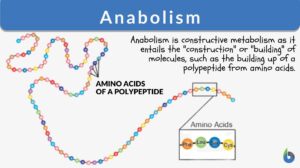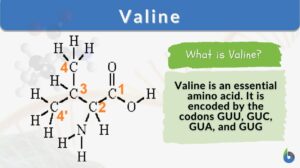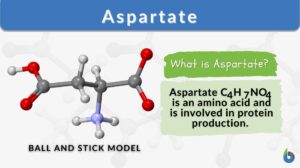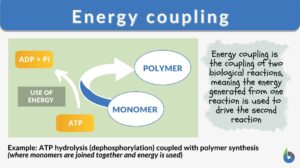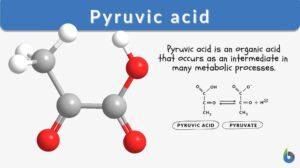Search Results for: gluconeogenesis
Gluconeogenesis
Definition noun The metabolic process in which glucose is formed from non-carbohydrate precursors Supplement Glucose is an... Read More
Carbohydrate
Carbohydrate Definition A biomolecule refers to any molecule that is produced by living organisms. As such, most of them... Read More
Glucocorticoid
Definition noun, plural: glucocorticoids Any of a group of corticosteroids involved in carbohydrate metabolism (e.g.... Read More
Endoplasmic reticulum
Endoplasmic Reticulum Definition The endoplasmic reticulum is a membrane-bound organelle in cells of eukaryotic cells... Read More
Glycogenolysis
Definition noun The metabolic process of breaking down stored glycogen in liver into glucose subunits (i.e.... Read More
Smooth endoplasmic reticulum
Smooth Endoplasmic Reticulum Definition Smooth endoplasmic reticulum (sER) is part of or a region in the endoplasmic... Read More
Homeostasis
Homeostasis is the tendency not to stray from the range of favorable or ideal internal conditions. Such conditions must be... Read More
Metabolism
Metabolism Definition What is metabolism in the body? Metabolism encompasses the various biochemical processes, reactions,... Read More
Regulation of Organic Metabolism, Growth and Energy Balance
Organic Metabolism Events of Absorptive and Post-absorptive States. The absorptive state is the period during which... Read More
Glyceraldehyde phosphate
Definition noun A phosphate ester of the 3-carbon sugar glyceraldehyde and has chemical formula:... Read More
Kidneys and Regulation of Water and Inorganic Ions
Renal Functions Kidneys remove/add substances from/to the plasma.Regulate water concentration, inorganic ion... Read More
Protein Activity and Cellular Metabolism
Protein Binding Sites The ability of various molecules and ions to bind to specific sites on the protein surface forms the... Read More
Guanosine triphosphate
Definition noun plural: guanosine triphosphates (biochemistry) An organic compound that is composed of guanosine (a... Read More
Guanosine diphosphate
Definition noun plural: guanosine diphosphates (biochemistry) A nucleotide made up of guanine, ribose, and two phosphate... Read More
Somatotroph
Definition noun, plural: somatotrophs The hormone-secreting cell in the anterior pituitary that particularly releases... Read More
White adipose tissue
Definition noun, plural: white adipose tissues A type of adipose tissue found in mammals used to store energy and acts as... Read More
Energy coupling
What is Energy Coupling? Work, whether it be physical or biological, requires energy to be expended. In biological... Read More
Cellular respiration
Cellular Respiration Definition What is cellular respiration in simple terms? Cellular respiration can be defined simply as... Read More
Fermentation
Fermentation Definition What is fermentation? Fermentation is the breaking down of sugar molecules into simpler compounds... Read More
Monosaccharide
Monosaccharide Definition In biology and biochemistry, a monosaccharide is a simple sugar that constitutes the building... Read More
Pyruvic acid
What is Pyruvic Acid? Pyruvic acid is an organic acid that occurs as an intermediate in many metabolic processes. It occurs... Read More
Glycolysis
What is Glycolysis and Why is it Important? Glycolysis is a metabolic pathway by which the 6-carbon molecule of glucose is... Read More
Glycogenesis
Definition noun The metabolic process of producing glycogen from glucose for storage mainly in liver and muscle cells in... Read More
Catabolism
Catabolism Definition Catabolism is the branch of the metabolic process that breaks down complex, big molecules into... Read More

